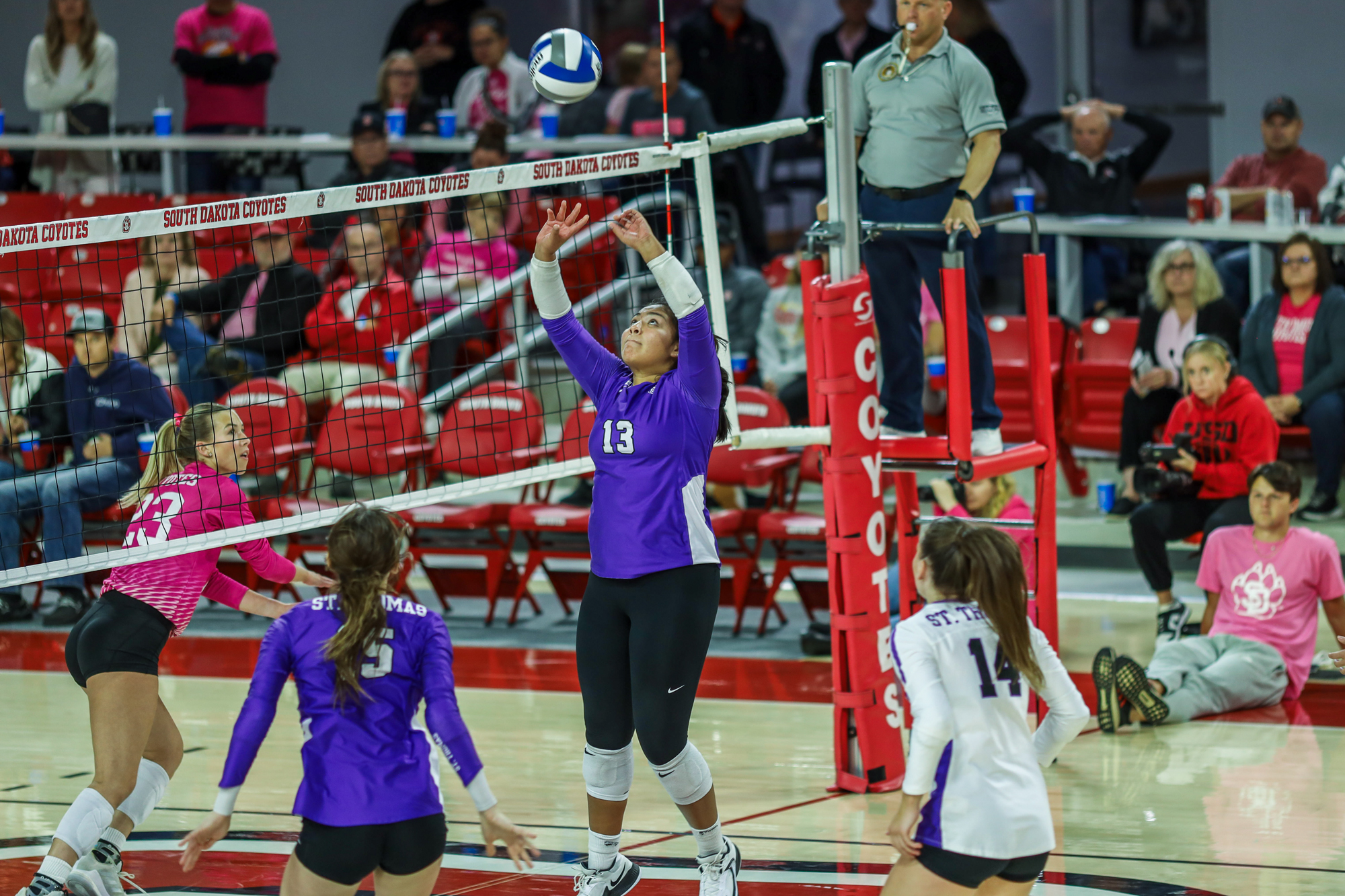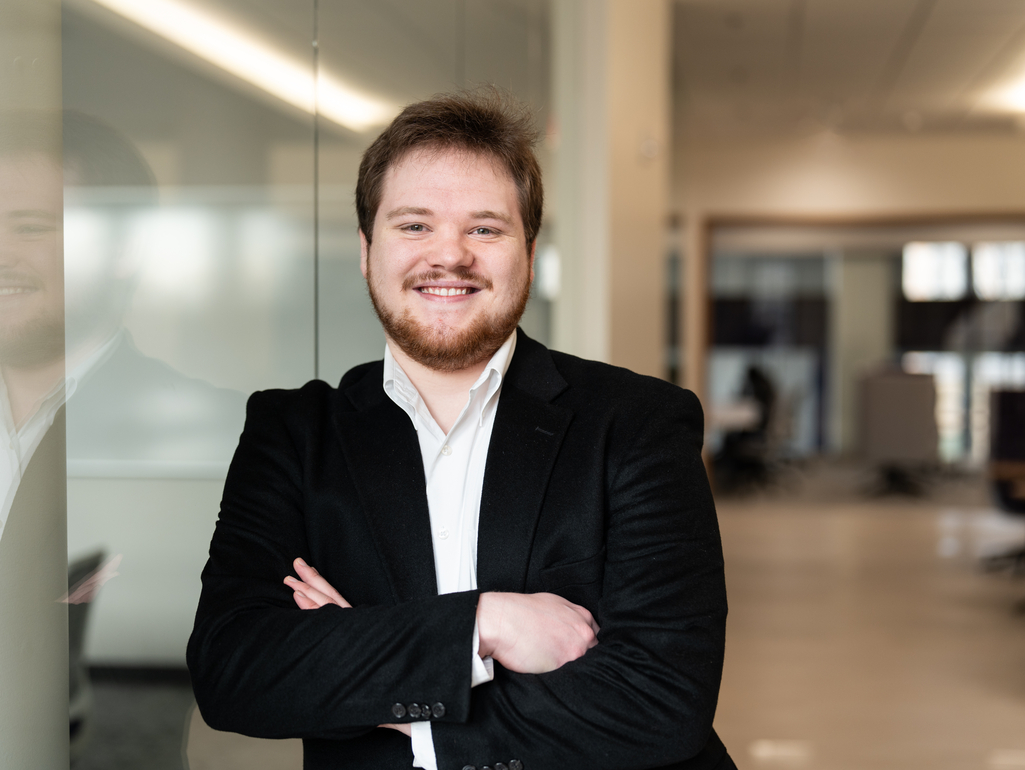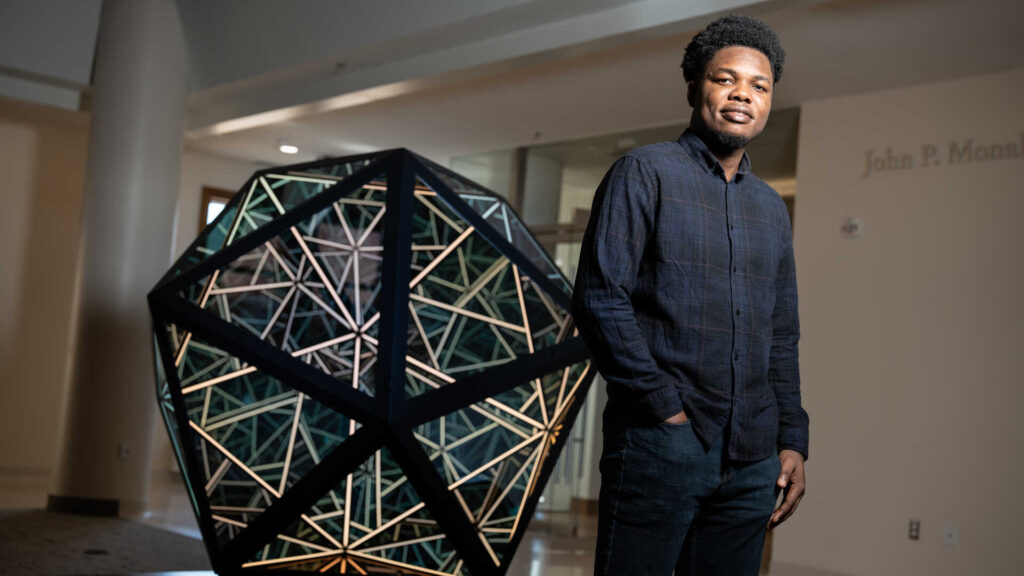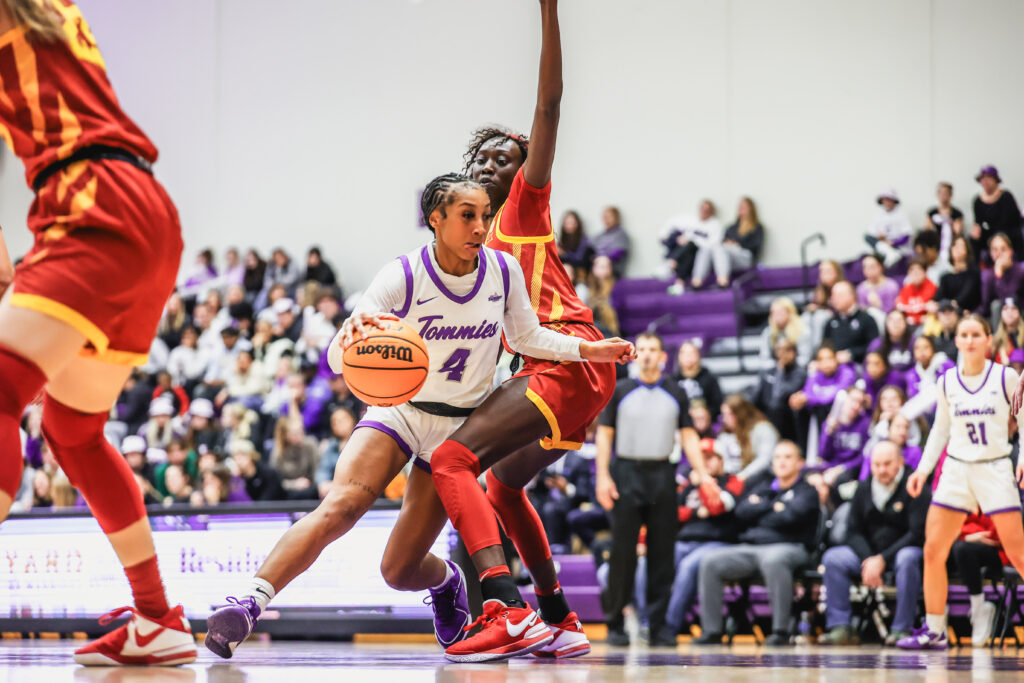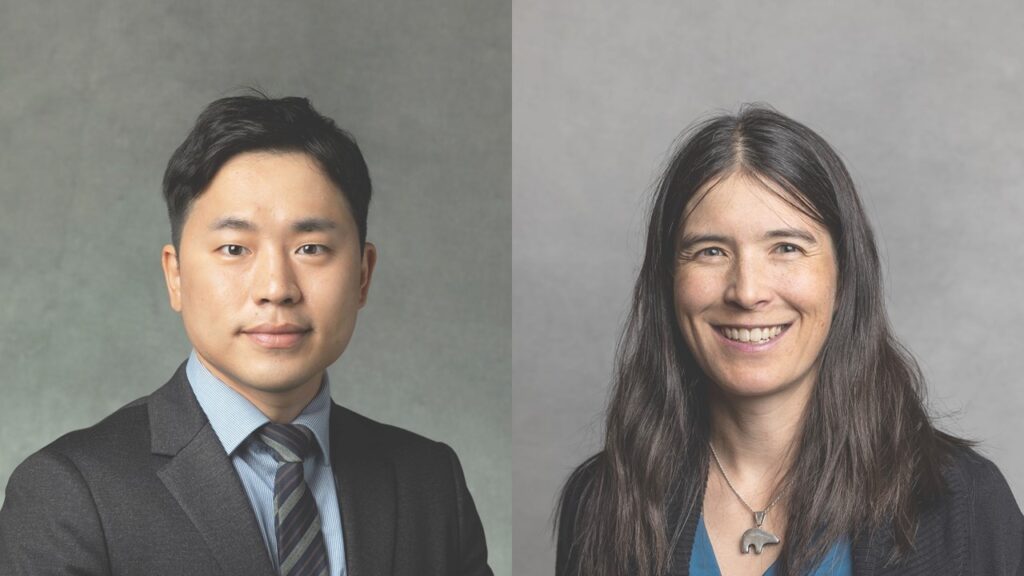Growing up, Keya Luta Win Hunt ’26 didn’t always see herself represented on the volleyball court. Now, a setter on the University of St. Thomas volleyball team, she hopes to help inspire a new generation of Native student-athletes.
Hunt is an enrolled member of the Ho-Chunk Nation of Wisconsin. Her father is Ho-Chunk and Leech Lake Ojibwe and her mother is Oglala Lakota. She grew up in Minneapolis and played volleyball at Breck School in suburb Golden Valley before joining the Division I team at St. Thomas.
The Newsroom spoke with Hunt about her culture and traditions in honor of Native American Heritage Month. The month is set aside as a special time to celebrate the rich ancestry of Native Americans, the first people to inhabit the land that the University of St. Thomas now occupies.
Why did you decide to attend the University of St. Thomas?
I was being recruited by several schools for volleyball, and originally I thought I might head to a different state. But the environment of Minnesota, especially the Twin Cities and my home, ended up keeping me here. The chance to be close to my family was a big factor and also the campus is really beautiful.
Growing up, how would you connect with your Native culture?
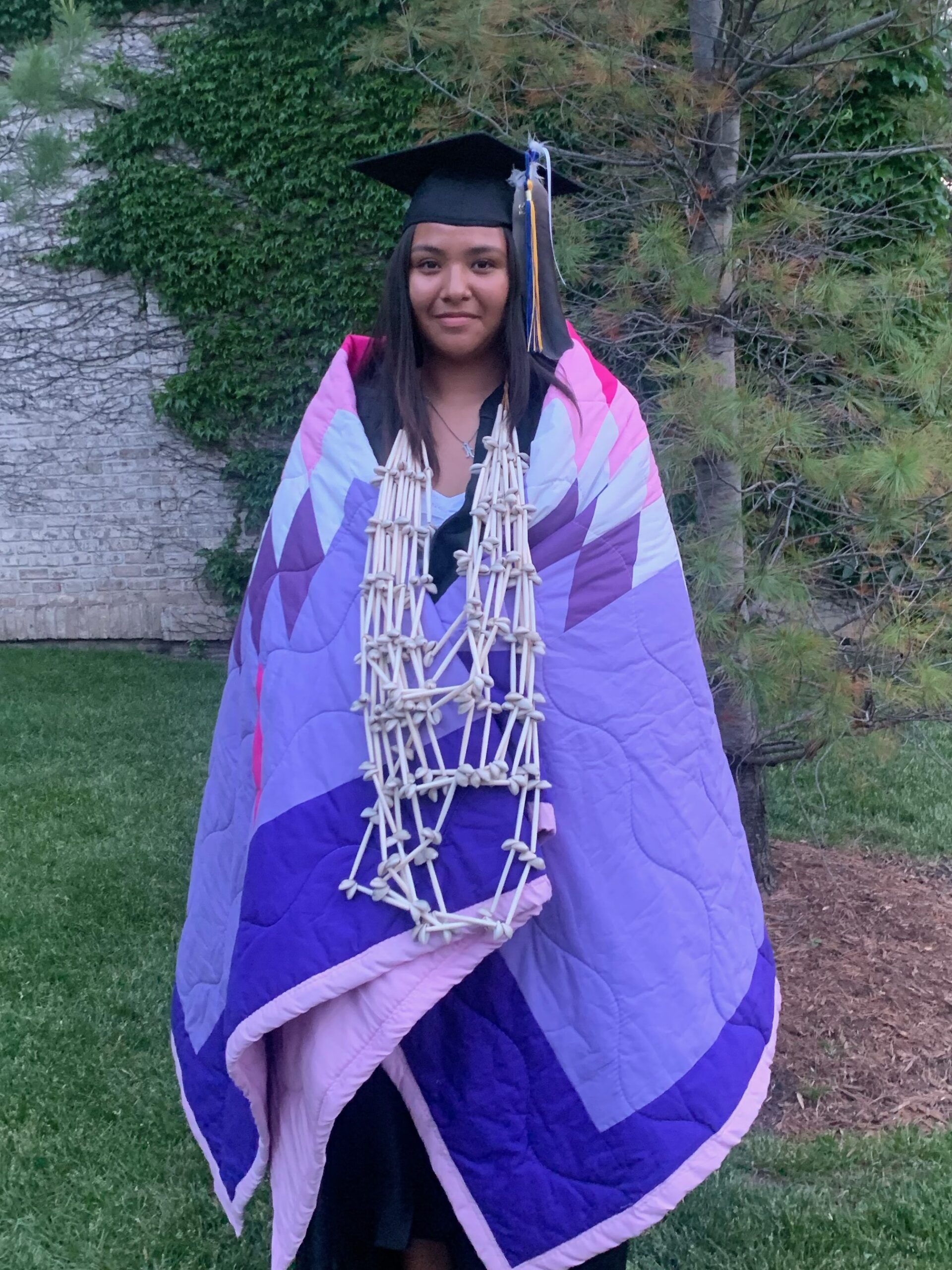
My culture has always been a part of my daily life. Every day I carry my cultural values and teachings that have been passed down for many generations. I offer tobacco and other spiritual offerings to say thank you for my life, health, and assistance.
How do you celebrate and honor your Native heritage at St. Thomas?
As many of our elders say, ‘every day is a ceremony’ that you should be trying to live by what you believe. A big part of it for me is just being in the moment, taking care of other people, and appreciating the land. I want to respect everyone and value everyone for who they are, no matter what they do. I still go to ceremonies, and I’ll light sage, which is a plant and sacred medicine, to cleanse spaces.
Your mother had a specific request to honor your heritage on the volleyball team.
My full first name is Keya Luta Win and it means Red Turtle Woman. My mom thought it was really important that it be on the roster, not just Keya Hunt, because when we travel around and we go to these different states, there might be different Indigenous kids who want to pursue sports to a different level. And if they see someone who is at the Division I level and has a name like them and see someone who looks like them, they can think they can do it.
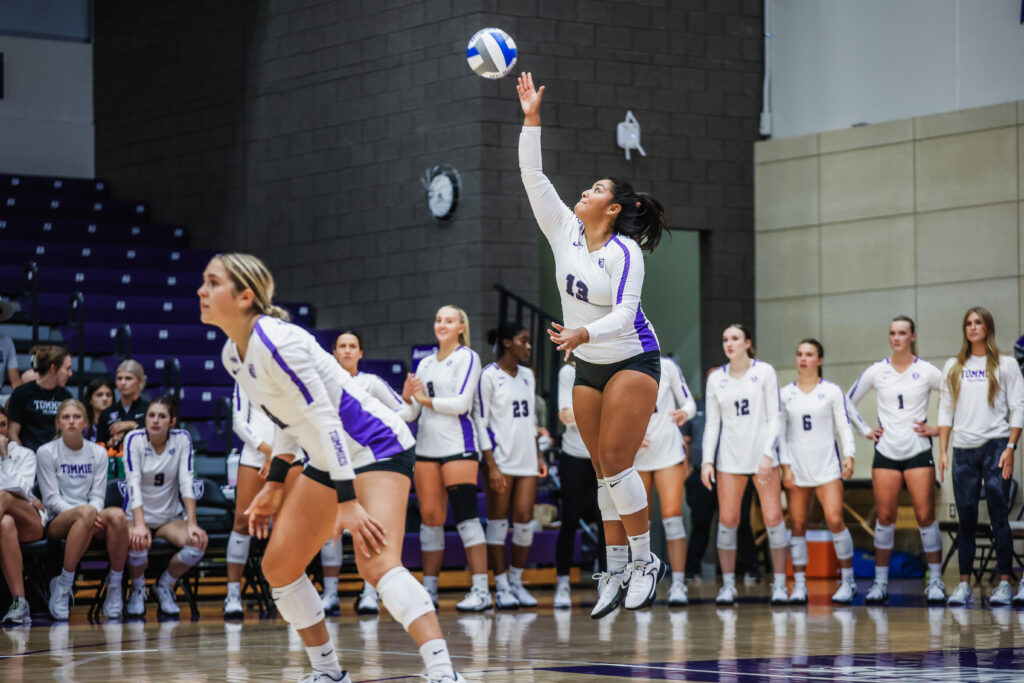
How has your Native heritage impacted your journey at St. Thomas?
My grandpa was in the boarding school in South Dakota, and he had a really hard time with that, but despite everything that he went through, education was still very important to him. He encouraged my mom to go to college and because of that, she really encouraged me to go to college. Education is one of those things that can significantly impact your life in a good way. And I think, because I know how hard it was for my mom and my grandpa to go to college, I really want to prove to them, prove to myself that it’s an important thing we can accomplish. I think it’s a really good thing that I’m here and that I’m playing volleyball, showing people that we can do this.
What would you like the St. Thomas community to think about during Native American Heritage Month?
It’s important to remember that this land was occupied by Indigenous people before all of this was made and this school was built. It’s not just a piece of land that was originally empty. The people that lived in this area have been through a lot of trauma – it’s important to recognize that. Indigenous peoples have rich cultures full of traditions, stories, songs and ceremonies that are very much alive and well in the present moment. There are 574 federally recognized tribes in the U.S., including 11 in Minnesota, with each one having their own traditional ways.
